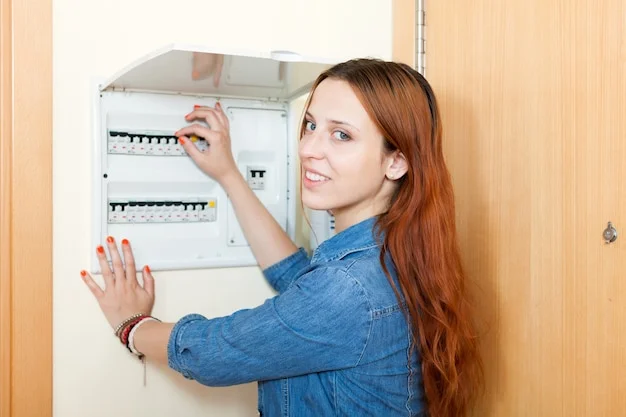Dealing with an air conditioning system that repeatedly trips the circuit breaker can be frustrating and concerning. The circuit breaker’s purpose is to protect the wiring in your home by shutting off the power when it detects an overload or short circuit. When this happens consistently with your AC, it indicates an underlying issue that should not be ignored. We will explore the potential causes of an AC circuit breaker tripping and discuss ways to address and resolve the problem effectively. We will help you identify possible solutions, preventing further damage and ensuring your home’s cooling system operates efficiently. You can click for details to learn more about our HVAC services.
Common Causes for Circuit Breaker Tripping
An overloaded circuit is one of the most common causes for a circuit breaker to trip. Air conditioners require significant power to run, and if too many appliances are drawing power from the same circuit, the breaker will trip to prevent overheating and potential fires. Another reason for tripping could be a short circuit. A short circuit occurs when the wiring in your AC system comes into contact with itself or another wire, causing a sudden surge of electricity. This surge is too much for the breaker to handle, prompting it to shut off the power. Additionally, a faulty compressor or other malfunctioning components in your air conditioner can draw more current than the circuit can support, triggering the breaker. Identifying whether the problem stems from an overload, short circuit, or mechanical failure is key to resolving the issue.
Overloading the Circuit: A Likely Culprit
The combined load can easily exceed the breaker’s rating if your AC unit shares a circuit with other heavy electrical appliances. This is a particularly common issue in older homes or when appliances have been added to the circuit over time. To address this, consider redistributing the load. For example, plugging other devices into different circuits will reduce the stress on the AC circuit. Another option is to install a dedicated circuit for your air conditioner. A dedicated circuit ensures that the AC has exclusive power supply use, significantly lowering the chances of an overload. In some cases, it may also be necessary to upgrade the breaker itself to one that can handle a higher load, ensuring it matches the requirements of your air conditioning system.
Short Circuit Issues: Why It Happens and How to Fix It
A short circuit in the air conditioning unit is a serious issue that requires immediate attention. When wiring becomes damaged or the components inside the AC system malfunction, they can cause a short circuit. This often results in the circuit breaker tripping as it attempts to protect the wiring from overheating. If you suspect a short circuit, it is essential to turn off the power to your air conditioning system and inspect the unit for signs of wear or damage, particularly in the wiring. Often, this requires the assistance of a technician to repair or replace the damaged wiring or components safely. Replacing the faulty part may be the only way to resolve the issue when the short circuit is inside the unit.
Faulty Components: A Closer Look at the AC Unit
Another potential cause for the circuit breaker tripping could be faulty components within the air conditioner. Components such as the compressor, fan motor, or capacitor play crucial roles in the functioning of your AC. If one of these parts fails, it can cause the unit to draw too much power, triggering the circuit breaker to trip. A malfunctioning compressor, for example, can draw excessive current, causing the breaker to shut off power. If the capacitor is faulty, it can fail to provide the necessary voltage to the compressor, causing it to work harder and consume more energy than usual. Regular maintenance, such as cleaning coils and checking refrigerant levels, can help prevent these issues. However, when a component fails, you may need to replace the damaged part to restore normal function.
Dirty or Blocked Air Filters: Impacts on AC Performance
While dirty air filters are often overlooked, they can contribute to the AC unit drawing more power than necessary. When the air filter becomes clogged with dirt and debris, it restricts airflow, causing the system to work harder to cool the space. This increased workload can result in the system pulling more current from the circuit, leading to an overload that trips the breaker. To avoid this, checking and replacing your air filters regularly is important. You should replace filters every one to three months, especially during peak cooling seasons. If cleaning or replacing the filters doesn’t resolve the issue, it could indicate a larger mechanical failure within the AC unit, which may require professional inspection.
A constantly tripping AC circuit breaker is a sign of an underlying issue that needs to be addressed. Whether it’s an overloaded circuit, a short circuit, or a malfunctioning component, identifying and resolving the problem can help restore reliable operation to your air conditioner. Regular maintenance and monitoring of the electrical load in your home are essential for preventing these issues. If the problem persists, seeking professional help is the best course of action to ensure the safety and efficiency of your AC system. You can enjoy a cool and comfortable home without worrying about frequent circuit breaker trips by taking proactive steps.







